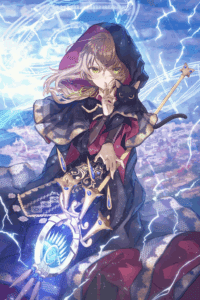Waifuism is a relatively recent phenomenon within otaku culture, which encompasses fans of anime, manga, and Japanese pop culture. The term “waifu” first gained significant attention in November 2007, according to Google Trends, and its earliest documented use on Urban Dictionary dates back to April 2, 2007. However, the concept of a waifu has roots that extend beyond otaku culture and even beyond anime.
The Origins of Waifu
The word “waifu” is actually an English loanword that entered the Japanese lexicon around the early 1980s. The adoption of this term was influenced by the evolving dynamics between husbands and wives in Japan. Traditional terms like “kanai” (meaning “inside the house” for wife) and “shujin” or “danna” (meaning “master” for husband) became increasingly viewed as outdated and offensive by younger couples. As these words no longer accurately reflected modern relationships, many young couples began using the English words “husband” and “wife,” which were adapted into Japanese as “hazu” and “waifu,” respectively.
Waifu in Otaku Culture
Over time, these words were embraced by American anime and manga fans, who began using “waifu” to refer to their favorite fictional characters. One of the anime series often credited with popularizing the term in this context is Azumanga Daioh. However, the use of “waifu” in Japanese anime and manga predates this popularization, showing that the concept had been simmering in the background before it became a part of global otaku culture.
The Meaning of Waifu in Otaku Culture
In otaku culture, a waifu is a fictional character that an anime fan considers as a wife or, more broadly, a deeply cherished partner. For female anime fans, the term “husbando” is often used to describe a male character they admire in a similar way. Interestingly, the otaku community in the West adopted “waifu” instead of the Japanese term “hazu” to describe these relationships, although “waifu” is sometimes used by female fans to refer to their favorite male characters as well. The boundaries of these labels are flexible.
A waifu is essentially a fictional character that someone loves. This relationship can exist on a spectrum—from casual and playful to deeply serious. For some, waifuism is a lighthearted, temporary affection, while for others, it is a serious commitment, sometimes even symbolized by wearing a wedding band. These individuals may consider their waifu to be a real person with feelings, capable of experiencing emotions like disappointment, anger, or hurt based on the fan’s actions.
Characteristics of Waifuism
While each waifu relationship is unique, there are several common characteristics shared by the community:
- Commitment: Waifu relationships often involve a deep sense of commitment.
- Awareness: The lover of the waifu knows that the character is fictional.
- Sexuality: The sexual aspect of the relationship is a personal decision, varying from person to person.
- Consideration: The waifu’s perspective is taken into account when making decisions.
- 3D Relationships: Having a waifu doesn’t necessarily prevent someone from engaging in a real-world (3D) relationship.
- Reality of the Relationship: For many, the relationship with a waifu is as real as any other emotional connection.
Waifuism and Social Perception
Contrary to some stereotypes, not all people involved in waifuism suffer from social anxiety or other social issues. The community is diverse, including self-described asexuals, people who are married to real-life partners, and those who are simply passionate about their favorite characters. While some individuals may struggle with delusions, most members of the waifu community are fully aware that they are in love with a fictional character. These characters exist in the realm of ideas and the mind, providing comfort and companionship in a way that transcends the physical world.
The Sexual Component of Waifuism
The sexual aspect of waifuism is a topic of debate within the community. Some view sexual relations with their waifu as a healthy and essential part of their “marriage,” similar to how sex is viewed in real-world relationships. Others, particularly those with younger waifus, find the idea of sex with their waifu to be unappealing or even distressing. For some, the thought of having sexual fantasies about anyone other than their waifu is akin to adultery, while others do not see any conflict. The approach to sexuality within waifuism is highly individual and varies from person to person, often based on their own values and the perceived personality of their waifu.
Waifuism Beyond Anime and Manga
Waifuism is not limited to anime and manga characters. Any fictional character, from any medium, has the potential to become a waifu. Interestingly, waifus are not usually chosen deliberately; rather, the connection is often described as an emotional event—something that just “happens” when a fan resonates deeply with a particular character. For most people, waifuism is not rooted in delusion or anti-social behavior but rather in a genuine emotional connection.
Maid Cafes and the 2.5D World
Maid cafes in Japan serve as an intriguing extension of waifuism, offering an outlet for social needs that purely fictional relationships might not satisfy. These themed cafes feature staff dressed as maids or other characters, who interact with patrons while staying in character. While these characters are original creations and not usually tied to established anime or manga franchises, it is possible for a patron to develop romantic feelings for the role-played persona of a maid. Maid cafes occupy a unique “2.5D” space—they exist between the 2D world of waifuism and the 3D world because the maids are living people portraying fictional characters. This level of role-play can fulfill social needs that a purely waifu-based relationship might not address.
The Psychology of Waifuism
For some individuals, waifuism can become a delusion that negatively impacts their mental health. However, for most, waifuism serves as a connection that fulfills emotional needs that they might not be able to meet in the real world. While there is a risk of projection—where someone might project their own desires onto their waifu—the character’s personality is often drawn from the stories they originate from, allowing for a reasonably accurate interpretation of how they might “respond” to the fan’s decisions or actions. This process is similar to how real-world couples anticipate and react to each other’s needs, with the key difference being that the waifu cannot reciprocate.
Benefits and Drawbacks of Waifuism
This one-sided connection has both benefits and drawbacks. On one hand, it shields a person from the complexities and potential conflicts of real-world relationships. Waifus are “safe” partners who do not contradict or challenge the fan. On the other hand, this relationship can be beneficial by allowing a person to practice empathy and compassion—considering another’s perspective and feelings, even if that “other” is a fictional character. This practice can, in turn, help someone develop better interpersonal skills in the real world, preparing them for more fulfilling relationships with actual people.
Conclusion
Waifuism is a complex and multifaceted phenomenon that reflects the evolving nature of relationships in the digital age. While it may be easy to dismiss waifuism as a niche or fringe activity, it provides a valuable insight into how people connect with fiction, emotion, and each other in an increasingly virtual world. For many, waifuism is a meaningful and fulfilling connection, offering comfort, companionship, and a unique way to explore and express their emotional world.















